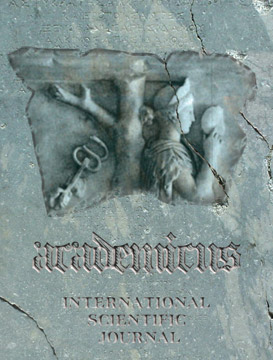Water is a theme connected to human and social development, not only biologically but also in terms of cultural and identity processes; surprisingly, studies that discuss water from a sociocultural/sociological perspective are scarce. The foundational role of water in the construction of social reality should be highlighted: as a matter of fact, thanks to it identity processes develop, and the realisation of the relationship between human beings and the environment, and between culture and nature, occurs. The relationship with water as a primordial substance tied to the roots of existence pertains to the physiological as well as the historical development of societies. Historically, societies see the presence of water in their territories as an indispensable element for establishing the foundations of civilisations, and a central criterion for setting the bases of development. With regards to the management of territorial resources, it should be noted that, although water is a primary resource, it is not available everywhere. Humans had to struggle to secure reliable water sources, using techniques derived from millenary knowledge systems, which enabled individuals and communities to live and survive in times of abundance and scarcity, tumultuousness and poor health. Past narratives and ethnographies related to traditional communities link symbols to history, productive forms, and material constraints due to the physical factors of the environment. Water is a foundational element of the cosmogonic and theogonic myths that governed the evolution of ancient genealogies and epistemologies. For its intrinsic virtues, water is considered a living and beneficial force: it is hard to find another substance that can at the same time wash away guilt, eliminate impurities, refresh and reinvigorate weary souls, and promise renewal and existential rebirth. Starting from these premises, the essay deals with the theme of water, a humble substance with complex implications, considering the foundations of culture, and analyzing the natural element from a sociological perspective with reference to myths of origins, naturalistic philosophical conceptions, and imaginary, up to and including aspects related to religiosity, to get to the roots of identity.
Academicus International Scientific Journal is an Open Access Journal. This means that all content is freely available without charge to the user or his/her institution. Users are allowed to read, download, print, search, or link to the full texts of the articles in this journal without asking prior permission from the publisher or the author. This is in accordance with the BOAI definition of open access. Users are obliged to cite the source (Academicus International Scientific Journal) and the author, according to the international citation standards.
Academicus
International Scientific Journal
pISSN 2079-3715
eISSN 2309-1088
Address:
Sheshi i Flamurit, Rruga Muze
Al-9401 Vlorë, Albania
Tel: +355 68 60 60 555
info@academicus.edu.al
https://academicus.edu.al



 Scholar
Scholar
 Crossref
Crossref
